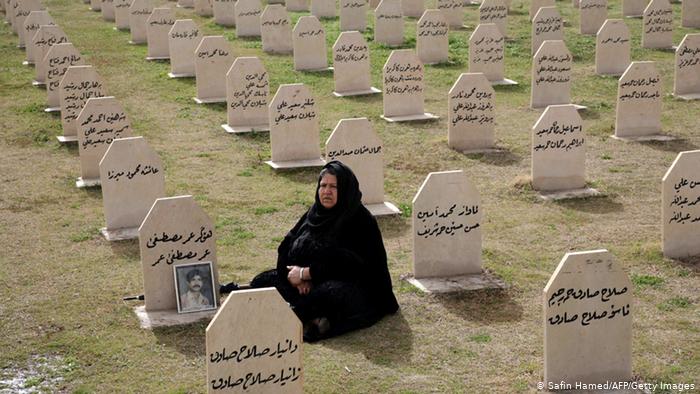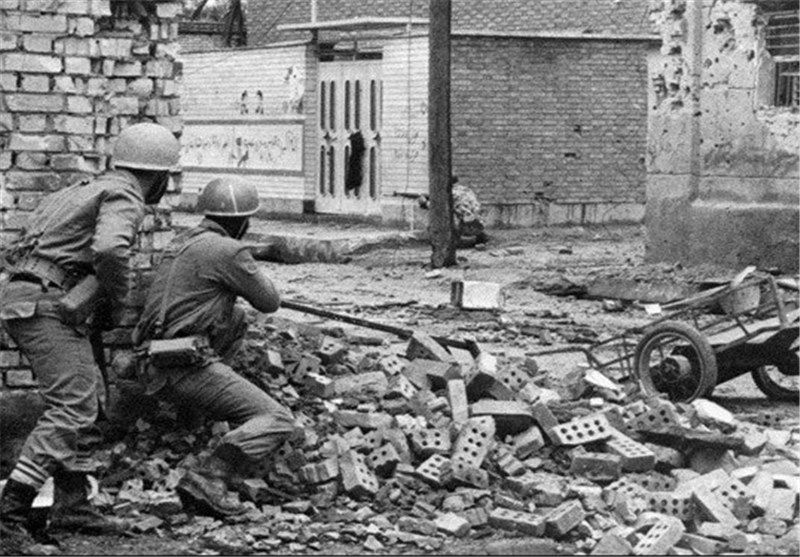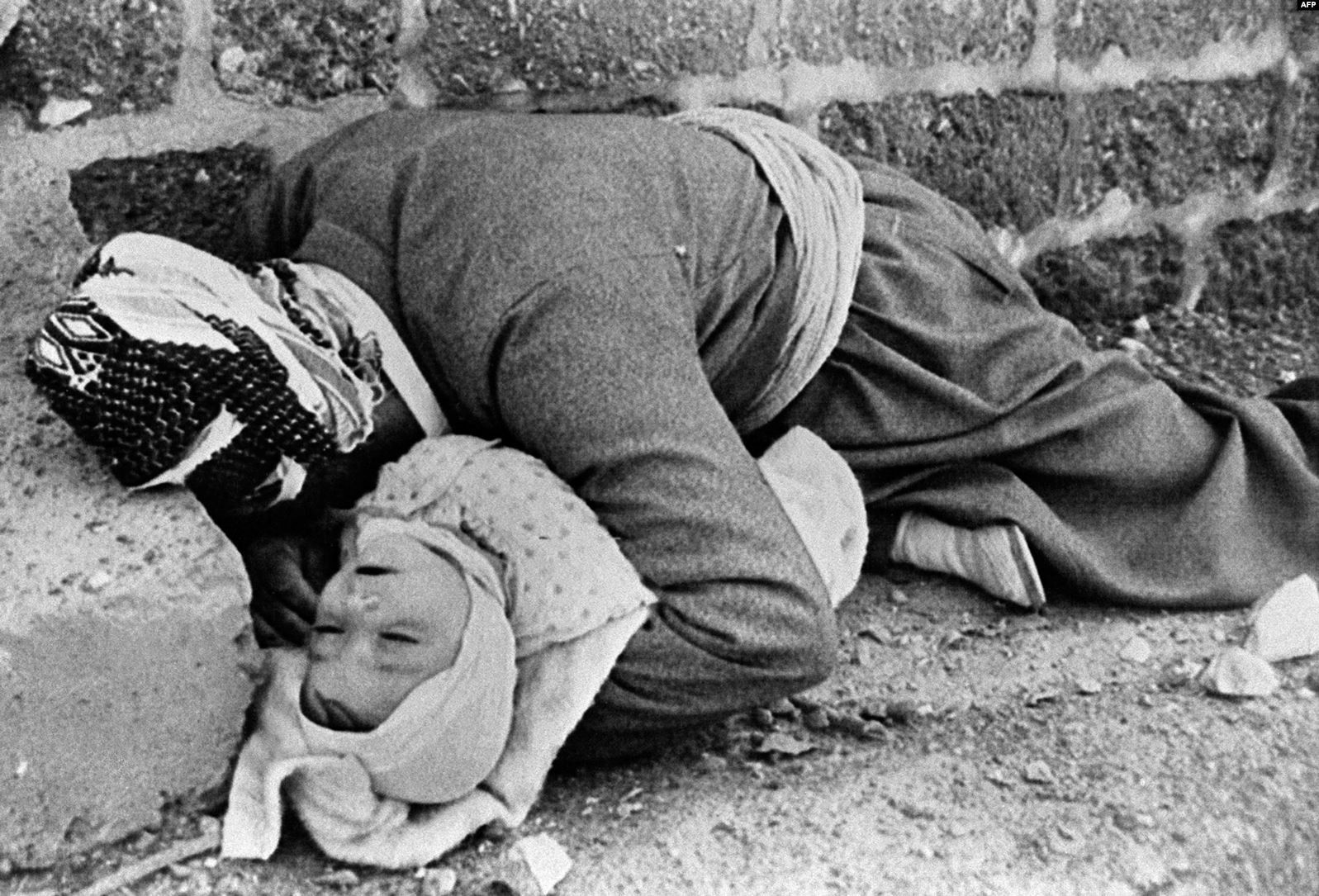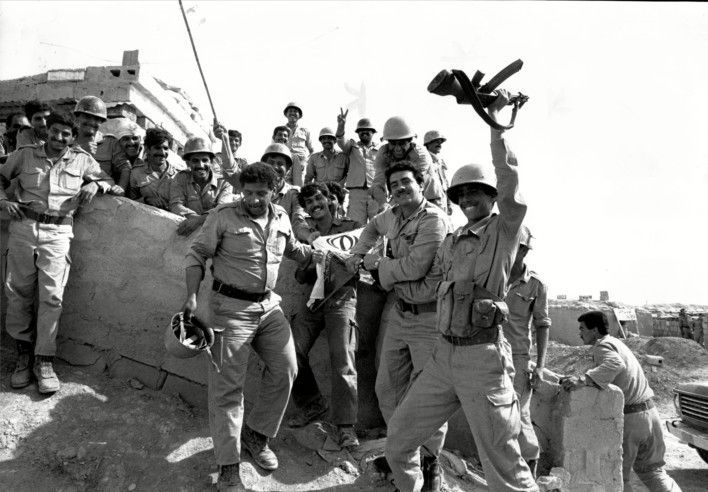The Halabja genocide
Today on the 16th of March we commemorate the Halabja genocide against Kurds (1988). The genocide took place as part of the Ba’ath Anfal campaign when mostly Kurds, Turkmens, and Assyrians/Chaldeans were killed in northern Iraq in the final stages of the Iran–Iraq War. This campaign included the use of ground offensives, aerial bombing, mass deportations and chemical warfare. The Anfal campaign, including the Halabja genocide, has also to be seen within the context of the Iran-Iraq war.

Iraq-Iran war
Following a period of tensions between Iraq and Iran, land and air invasions of Khuzestan by the Iraqi army on September 22 in 1980 marked the beginning of the eight-year-long Iran-Iraq war. During the invasion, the Iraqi government was already involved in border skirmishes, deportations and propaganda fights with the ascendant Islamic republic of Iran for over a year. The years during the war were marked by ballistic-missile attacks and the extensive use of chemical weapons. For both countries the war ended with great losses and a crippled economy. The estimated toll included more than a million dead, a million of refugees, thousands of prisoners of war and many more traumatized people.

When Saddam Hussein took power in 1979 he had shaky legitimacy within the party, the army, Iraq and the wider Arab region. By conducting - at the time believed to be - a short war with Iran and annexing Arab speaking Khuzestan to Iraq, he would be able to affirm his legitimacy among the Iraqi elite and beyond. Simultaneously the Iran-Iraq war was also the beginning of an extensive counter-insurgency operation against the Iraqi people who bore the brunt of a highly unpopular war. In the south whole families were accused of having Iranian heritage or ties to the Dawa party and were jailed, deported or executed. In the North, Kurds on a similar basis were hunted down based on half investigated accusations of ties to the Communist party or Kurdish nationalist movements and alleged ties to Iran. This counter-insurgency operation radicalized as the war wore on and Iraq’s resources were being depleted. The 1988 Halabja genocide was the highpoint of this increasingly radicalized and racialized counter insurgency operation.

Chemical Weapons
It was estimated that during the war, a total of 1800 tons of mustard, 600 tons of sarin, and 140 tons of tabun was being used. Today, victims continue to lose their lives from the long-term physical effects (such as chronic lung-diseases and cancer) of the chemical weapons used. The chemical onslaught alone killed nearly 5000 Iranians and sickened more than 100,000. Additionally, Iraqi victims were attacked with mustard and nerve agents in the Halabja genocide, killing as many as 5,000 and wounding 7,000.

Saddam Hussein’s war machine was armed to the teeth with weapons from the United-States, Soviet Union, Sweden, Belgium, France and the Netherlands. These weapon sales were meant to extend and fuel the war for years to come so that both Iran and Iraq would not defeat each other and secure a destabilized and splintered Middle East to the benefit of Israeli primacy in the region. Additionally to maintain a cold war status quo where neither Iraq nor Iran would tilt too much to either the Soviet Union or the United states, it was important to selectively arm both Iran and Iraq. However what is often forgotten is that in the case of Iraq many of these western delivered arms were also used for Saddam’s counter insurgency inside of Iraq. The chemical attacks on Halabja were done through chemical components delivered by western companies within a framework of trade relations set up by western governments. For years the United States denied involvement in this attack nor did it recognize that it did happen.
This day is dedicated to the remembrance of everyone who lost their life during the Iraq-Iran war, during the Anfal campaign and the Halabja genocide as well as to those that still carry its heavy scars.
